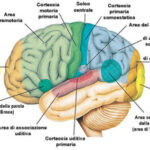April 22, 2025 Internet and virtual life
The present study proposes a reduction in the scope of analysis to descriptive terms, with a view to providing a definition of hackers.
What factors motivate hackers to breach computer systems ?

In recent years, the fields of psychology and criminology have witnessed a marked increase in research interest in the realm of virtual crime, also referred to as “hacking” (a term derived from the English phrase “to hack“, which literally means “to notch” alluding to the act of breaching a computer system).
In light of the mounting concern among private principals and institutional stakeholders regarding the security of their respective databases, researchers worldwide have embarked on a concerted effort to delineate “profiles” that can facilitate the prediction and prevention of this form of criminal activity.
In the intricate domain of cybersecurity, a compelling and intricate inquiry pertains to the motivations underpinning the actions of hackers.
Hackers are frequently portrayed as antagonists in the media ; however, they are actually individuals who operate in a nuanced context, straddling the legal and the illicit.
The psychological underpinnings of the subjects under examination are intricate, and a comprehensive understanding of their motivations is imperative for two key reasons.
Firstly, such understanding is essential for predicting their actions.
Secondly, it is crucial for developing more effective defensive strategies.
It has been demonstrated that each instance of a cybersecurity breach or cyber attack is the result of a meticulously formulated strategy, driven by a deliberate mind that aims to achieve objectives that extend far beyond mere destruction.
For some individuals, hacking represents an intellectual challenge, a puzzle to be solved.
The inherent complexity of digital systems exerts an irresistible attraction on these individuals.
The subjects under consideration are distinguished by an insatiable curiosity and a profound desire for understanding that propels them to surmount seemingly insurmountable barriers.
A salient element that emerged from the analysis of hacker psychology is the desire for power and control.
For a subset of individuals, the transgression of a system is conceived as a means of asserting dominance over a perceived reality that is regarded as impenetrable or oppressive.
The text under consideration herein underscores the plight of individuals who, impelled by a perception of social marginalization or powerlessness, resort to the practice of hacking as a means to reestablish equilibrium in power dynamics.
Unauthorized access can elicit a sense of superiority in such individuals, thereby transforming a vulnerable situation into a strategic advantage.
The role of profit cannot be considered of secondary importance.
The cybercrime industry is experiencing rapid growth, with profits that rival those of conventional economies.

A considerable number of hackers engage in illicit activities for financial gain, recognizing these activities as a viable means of livelihood in an environment characterized by limited alternatives.
In such a context, this type of motivation manifests itself with particular evidence in organized groups.
In these groups, hacking takes the form of a collective enterprise, structured and oriented toward achieving maximum economic profit.
However, it would be a fallacy to assert that all hackers are motivated by such readily apparent factors.
Certain individuals are motivated by a yearning for social justice, a sentiment that can manifest in the form of hacktivism or, in more extreme instances, culminate in the perpetration of cyberterrorist acts.
Such individuals regard their actions as a means of countering injustice, highlighting the contradictions of the powerful, or giving voice to those who have no opportunity for expression.
Despite the fact that their actions are often the subject of condemnation, it is difficult not to consider the social impact of their operations.
Finally, the role of ego cannot be overlooked.
For a subset of hackers, the primary motivation is the pursuit of recognition and status within a community.
The practice of breaching the security of a system that is widely regarded as impenetrable can be regarded as a form of personal validation.
It serves as a conduit for attaining esteem and acknowledgment within a milieu that deems expertise and ingenuity to be of paramount significance.
A fundamental prerequisite for individuals engaged in the realm of cybersecurity is a comprehensive understanding of the psychological underpinnings that motivate hackers and inform their behaviors.
In order to devise effective defensive strategies, it is necessary to understand the mindset of the individuals in question.
The mindset is often characterized by a complex intertwining of factors such as curiosity, ambition, desire for revenge, and opportunism.
Hacking is not merely a technological issue ; rather, it functions as a lens through which one can observe the contradictions, aspirations, and challenges that characterize our society.
Hacking : an historical excursus
The continuous evolution of technological progress, particularly in the information technology sector, has led to a state of flux in the field, making it difficult to reach unambiguous and definitive conclusions regarding the definition of hackers and methods to counter their activities.
Nevertheless, an analysis of the factors underlying this criminal phenomenon is possible, with the objective of increasing user awareness from a preventive perspective.

It is appropriate to establish a chronological premise : the practice of hacking, understood as a revolutionary and irreverent one, originated among talented MIT students in the 1980s.
This movement can be defined as a vanguard of thought enlightenment.
Its objective was to challenge bureaucratic and political barriers through the use of intellect.
The ultimate goal of this movement was to violate the inviolable and break down the limitations imposed by established power structures.
Notwithstanding the numerous evolutionary processes related to hacking and advancements in the domain of information technology, this notion endures to the present day.
Cyberspace is conceptualized “as a dimension that supersedes geographical boundaries, political divisions, and the concept of identity” (Ramsdell, 2011), thereby obfuscating the distinctions between legitimate and illegitimate activities.
As is well established, the most prevalent taxonomy for categorizing hackers is presented as a moral tripartition : “black hat” hackers, who act in illegality for criminal purposes ; “gray hat” hackers, who are in a borderline and redemptive zone ; and “white hat” hackers, who carry out violations but on commission from intelligence services and institutions for the purpose of investigation and protection of order.
In the realm of ethical considerations, hacktivism emerges as a salient nuance.
This concept is frequently linked to the Guy Fawkes mask, which has emerged as a symbol of Anonymous hackers.
In the contemporary geopolitical landscape, there are entities that have adopted a confrontational posture toward the global scourge of terrorism, employing sophisticated technological means to pursue their objectives.
This approach, while perhaps not aligned with conventional ethical standards, finds its philosophical underpinnings in the well-known adage coined by the renowned political theorist Niccolò Machiavelli : “The end justifies the means“.
Hackers : a definition and psychological assessment
In order to provide a definition of hackers, it is first necessary to reduce the scope of the analysis to descriptive terms.
In accordance with the works of several authors (Jeong S. & McSwiggen, 2014 ; Jafarkarimi, 2015 ; Donner, 2016), “the hacker, in general, manifests the following characteristics : he is predominantly young, Caucasian, and male“.
An analysis of the role of family in terms of parenting style has also been conducted to determine whether it may serve as a risk or protective factor.
According to the findings of a 2014 study, “adolescents from highly cohesive families appear to be less likely to engage in illicit and risky activities online” (Sasson & Mesch, 2014).
Nonetheless, the aforementioned authors observed that “an excessively protective parenting style predicated on the monitoring and supervision of Internet activities might, paradoxically, encourage transgressive behavior“.
In regard to the personality of hackers, Fasanmi and colleagues (2011) conducted a study to examine the role of specific variables (i.e., gender, age, need for achievement, psychoticism, neuroticism, and extroversion) in predicting youth attitudes toward Internet fraud.
The study revealed that “young male users, characterized by a high need for achievement, demonstrate a heightened propensity to engage in online criminal activities“.
A substantial body of scientific evidence corroborates the notion of a “significant relationship between male gender and hacking” (Seigfried-Spellar, 2014).
This relationship is particularly interesting when compared with Simon Baron-Cohen’s (2011) theory describing “the autistic brain as an extreme form of the male brain, moving from a system to a hypersystem”
In contrast, the question of whether there is a possibility of an overlap between autistic traits and hacking has been posed.
In his autobiography (2011), Julian Assange, the founder of WikiLeaks, expressed his thoughts on the matter, stating, “like all hackers, and like all men, I am a bit autistic“, thereby underscoring the deep-rooted popular myth of the hacker as a geek (brainiac), a myth that is fueled by novels, books, and television shows.
While the hypothesis of an autistic origin of hacking provides a plausible explanation for the talent for code-breaking as an expression of a narrow interest in closed and predictable systems in terms of rules, such an interpretation could be misleading from a legal point of view.
In the context of a trial, interpreting hacking as a “clinical” fact could enable defense lawyers to exculpate extremely damaging acts.
As is the case with crimes that occur in the tangible world, those that occur in virtual reality are also the result of deviant behavior and a limited capacity for empathy.
The theoretical premises regarding “regressive online behavior” (Norman, 1996) or the “assurance of invisibility, asynchrony, solipsistic introjection, dissociation, and minimization of authority in cyberspace” (Suler, 2004) form the basis for the hypothesis of studying hacking as deviant conduct and empathic deficiency.
Despite the dearth of specific data regarding the relationship between hacking, ruthless behaviors, and emotionlessness or clinical psychopathy, Fanti et al. (2013) demonstrated that “cyber-aggression behaviors are associated with high levels of narcissism and subclinical psychopathy” using the Dark Triad (Jones & Paulhus, 2014) on a sample of adolescents.

In the field of criminology, the use of virtual reality has emerged as a means of assessing individual morality, irrespective of the nature of the criminal act perpetrated online.
Individuals who have been victimized by criminal acts such as identity theft, illicit disclosure of data or money, often face stigmatization and dehumanization.
This phenomenon has been thoroughly documented in interviews conducted by Zhengchuan Xu et al. (2013) with six young Chinese hackers.
The qualitative data collected enabled the researchers to “delineate a common evolution in terms of the process of moral decay and identity acquisition as hackers.
Initially, passion for technology and curiosity dominate the relationship with the medium.
Consequently, an enhancement in competencies, as gauged by preliminary fraud, engenders invigorating and exigent predicaments, ultimately culminating in criminal initiation, both against individuals and communities“.
According to the English reports of the National Crime Agency (NCA, 2013), the recruitment and affiliation patterns of communities of online hackers are clearly delineated.
Such bodies appear to leverage the adrenaline-inducing challenge of breaching systems, which often manifests as a video game-like concatenation of trials.
Drawing parallels between Internet addiction and hacking, Mustafa Solmaz et al. conducted clinical studies in 2011, which yielded noteworthy findings.
Once the process of affiliation has been initiated, it becomes problematic for the individual to discontinue the use of the drug before the onset of withdrawal symptoms, especially if the discontinuation is abrupt.
In contemporary academic studies, a range of models and statistical analyses have been developed to describe the predictors of the phenomenon.
Such predictors have been analyzed within the criminological-psychological framework of the General Theory of Crime (Gottfredson & Hirschi, 1990), the Routine Activity Theory (Felson & Cohen, 1979), and the Social Learning Theory (Bandura, 1977).
In accordance with the hypothesis proposed by Donner (2014), “a low level of self-control would act as a predictor of online criminal activity“.
This assertion is corroborated by the findings of Philips et al. (2015), which demonstrate “a correlation between this condition and perceived lack of adequate supervision“, as well as by the studies of Marcum et al. (2014), who associate “this condition with the influence of deviant patterns.
To be more precise, the configuration of these antecedents, which remain to be investigated, delineates the conducive environment for the development of proficiency in hacking.
A deficiency in self-control signifies the initial stage of transgressing moral and legal boundaries.
The combination of a belief in the absence of authorities exercising control in the virtual context and acceptance or support from peers could result in behavior that falls into the category of cybercrime“.
A promising line of research would be to examine personal experiences of cybercrime, as demonstrated in previous studies regarding cyberbullying and problematic Internet use (Gámez-Guadix et al., 2013).
In summary, the investigation into the protective factors that impede adolescents from engaging in deviant behaviors online remains in its nascent stages.
Casidy et al. (2016) identified “religious education as an effective moral barrier against online crime“.
Nevertheless, further research is necessary to identify additional factors that may prove instrumental in future investigative endeavors.
These include an examination of attachment patterns and their potential to elucidate the attitudes and behaviors exhibited by digital natives and migrants within the context of cyberspace.
Bibliografy
1.Casidy R., Phau I., Lwin M. (2016). Religiosity and digital piracy: a empirical examination. Services Marketing Quarterly 2016, Vol 37 No1, 1-13. https://doi.org/10.1080/15332969.2015.1112172
2.Donner M. (2016). The Gender Gap and Cybercrime : An Examination of College Students’ Online Offending. Victims & Offenders : An International Journal of Evidence-based Research, Policy, and Practice. https://doi.org/10.1080/15564886.2016.1173157
3.Donner M., Marcum C., Jennings W.J., Higgins E., Banfield J. (2014). Low self-control and cybercrime: Exploring the utility of the general theory of crime beyond digital piracy. Computers in Human Behavior 34 (2014) 165–172. https://doi.org/10.1016/j.chb.2014.01.040
4.Fasanmi S., Kaburuk D., Ariyo S., Bosede A. (2011). Influence of Psycho-Social factors on Youths attitude towards internet fraus in Nigeria. Procedia Social and Behavioural Sciences 182 (2015) 110-115. https://doi.org/10.1016/j.sbspro.2015.04.745
5.Gámez-Guadix M., Orue I., Smith P.K. , Calvete E. (2013). Longitudinal and Reciprocal Relations of Cyberbullying With Depression, Substance Use, and Problematic Internet Use Among Adolescents . Journal of Adolescent Health 53 (2013) 446-452. https://doi.org/10.1016/j.jadohealth.2013.03.030
6.HM Government (2013). Serious and Organised Crime Strategy. UK Stationery Office Limited on behalf of the Controller of Her Majesty’s Stationery Office. https://assets.publishing.service.gov.uk/government/uploads/system/uploads/attachment_data/file/248645/Serious_and_Organised_Crime_Strategy.pdf
7.Jafarkarimi H. (2015). Individual Characteristics and Hacking, Piracy, Online Gambling and Pornography Use among Students : A Study in Malaysia. International Journal of Cyber Behaviour, Psychology and Learning (IJCBPL) 5(2). https://doi.org/10.4018/IJCBPL.2015040103
8.Jeong S. & McSwiggen C. (2014). Hackers ! The Myth that Warped an Industry. XRDS Summer 2014 vol 20 No.4. https://doi.org/10.1145/2604998
9.Marcum C., Higgins G.E., Ricketts M. L., Wolfe S. (2014). Hacking in High School : Cybercrime Perpetration by Juveniles. Deviant Behaviour, 35:7, 581-591. https://doi.org/10.1080/01639625.2013.867721
10.Philips E. (2015). Empirical Assessment of lifestyle routine activity ad social learning theory of cybercrime offending. BSU master thesis and projects item 25. https://vc.bridgew.edu/cgi/viewcontent.cgi?referer=&httpsredir=1&article=1024&context=theses
11.Ramsdell, W. (2011). Hackers and the Digital Sublime. Philosophy 191. https://www.arifyildirim.com/ilt510/will.ramsdell.pdf
12.Sasson H. & Mesch G. (2014). Parental mediation, peer norms and risky online behaviour among adolescents. Computers in Human Behaviour 33 (2014) 32–38. https://doi.org/10.1016/j.chb.2013.12.025
13.Seigfried-Spellar K. (2014). Assessing the Relationship between Autistic Traits and Cyber deviancy in a Sample of College Students. Behaviour and Information Technology, September 2014. https://doi.org/10.1080/0144929X.2014.978377
14.Solmaz M., Hasan B., Saygili S. (2011). Letter to the Editor. An adolescent case with Internet addiction and hacking : how are we dealing with this diverse spectrum of disorder? General Hospital Psychiatry 33 (2011) e15 e16. https://doi.org/10.1016/j.genhosppsych.2011.04.001
15.Zhengchuan X., Qing H., Chenghong Z. (2013). Why Computer Talents Become Computer Hackers ? Communications of the ACM · April 2013. https://doi.org/10.1145/2436256.243627














